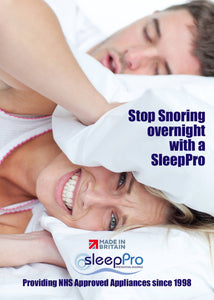This was clearly shown on Friday evening when an announcement from the Los Angeles medical examiner’s office on Carrie Fisher’s cause of death raised the possibility of a lethal interplay of sleep apnoea, drug use and heart disease.

Photograph of Carrie Fisher in Star Wars supplied for incorporation by Rex Features
Carrie Fisher was a well-known Hollywood actress and author who rose to fame in Star Wars playing one of the leading roles as Princess Leia. She collapsed on December 23rd on an 11-hour flight from London to Los Angeles and she died a few days later on December 27th.
In January, the medical examiner initially listed the cause of death as cardiac arrest, which is often confused with a heart attack. While a heart attack is a common cause of cardiac arrest, they are not the same thing. A heart attack occurs when a blockage stops blood flow to the heart, while a cardiac arrest, the sudden stoppage of the heart, is caused by a serious malfunction of the heart’s electrical system.
On Friday The Los Angeles County Department of Medical Examiner-Coroner said the cause of death was clearly caused by “sleep apnoea and other undetermined factors.”
Other findings in the autopsy included atherosclerotic heart disease and the use of multiple drugs, although the significance of the latter isn’t fully known, according to the announcement, which noted that the manner of Fisher’s death has been ruled “undetermined.”
The Greek word “apnea” means “without breath.” People with sleep apnoea stop breathing repeatedly during sleep, sometimes as often as 30 times an hour or more, for a few seconds to more than a minute each time. Most people who have it don’t know it, since the two main signs snoring, and snorting when breathing resumes, both occur during sleep although not everyone who snores has sleep apnoea.
A family member or bed partner is often the first to notice the signs, according to the National Hear, Lung, and Blood Institute (NHLBI) in the USA. Other signs include headaches or a dry mouth upon awakening; daytime sleepiness; an inability to concentrate; feeling irritable or depressed or having mood swings and waking up frequently to urinate, the NHLBI says.
The medical examiner did not specify what type of sleep apnoea Fisher had. Obstructive sleep apnoea, in which the upper airway collapses or becomes blocked repeatedly during sleep, is the more common, affecting an estimated 9% of women and 17% of men 50 and older, but fewer people younger than 50, according to the Heart Association. In central sleep apnoea, which is often related to certain medical conditions or medications, the airway isn’t blocked, but the brain fails to properly signal the breathing muscles. Snoring isn’t typically associated with central sleep apnoea but some people have both obstructive and central sleep apnoea.
If not diagnosed and treated, sleep apnoea can lead to serious, potentially fatal health problems. Population-based studies show that people with obstructive sleep apnoea have a significantly greater risk of heart arrhythmias, which can trigger sudden cardiac arrest, atherosclerosis, coronary heart disease, heart failure, high blood pressure, obesity, and type 2 diabetes, among other conditions according to the Heart Association.
Medication isn’t usually used to treat sleep apnoea, but the NHLBI lists several methods that can help open your airway while you sleep:
- Being overweight or obese is the most common cause of obstructive sleep apnoea, so sometimes losing weight stops apnoea episodes.
- If you smoke, quit.
- Sleep on your side instead of your back.
- If lifestyle changes aren’t enough, a custom-fitted mouthpiece made by a medically approved specialist can adjust your lower jaw and tongue to keep your airway open.
- For moderate to severe sleep apnoea, a “continuous positive airway pressure,” or “CPAP” machine is often used. The CPAP machine blows air into your throat while you sleep, helping to keep your airway open.
NHLBI Statements are used courtesy of Forbes Media, New York.
John Redfern



